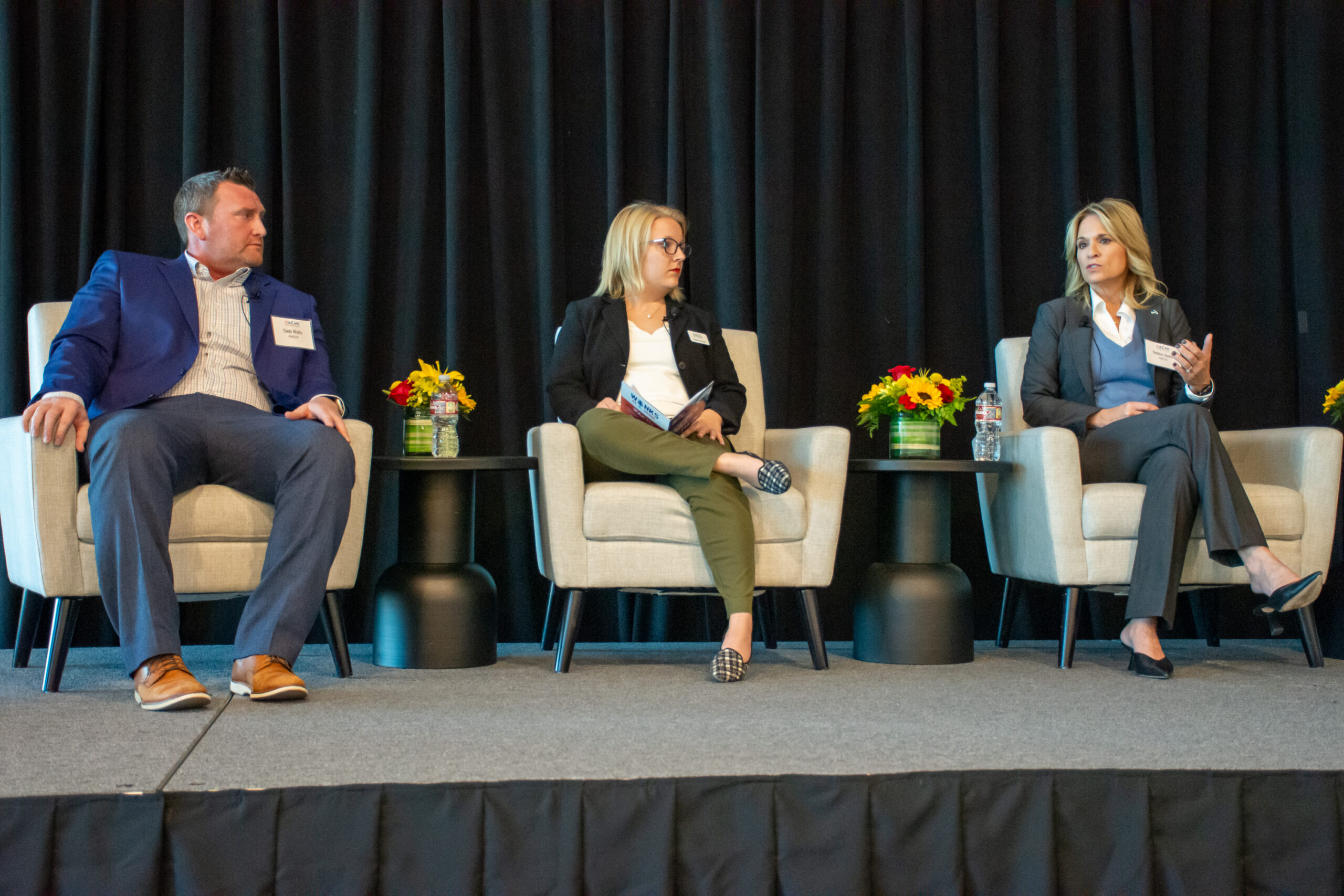
Author
Joshua Cook
Assistant Director of External Relations
Contact
ACHI Communications
501-526-2244
jlyon@achi.net
In Arkansas and around the nation, shortages of physicians, nurses, and other healthcare providers continue to challenge hospitals and the communities they serve. At a recent Fayetteville symposium on the future of health care in Arkansas, ACHI invited education, legislative, and workforce leaders to a panel discussion on how the state can address today’s healthcare labor shortages while simultaneously preparing for tomorrow.

Titled “Health Force 2050,” the discussion was part of a symposium marking ACHI’s 25th anniversary as a catalyst for improving the health of Arkansans. Here are some key takeaways from the conversation:
- “If we want to be rich with healthcare workers, we have to create the environment for that to happen,” said Debbie Jones, superintendent of Bentonville Schools. She described Ignite, a program in her district that provides high school students with firsthand experiences in health care. Making a program like this work requires local businesses and healthcare professionals reaching out to schools with the goal of training future healthcare workers, she said.
- Retention remains a challenge for many hospitals. Cody Waits, a senior government engagement manager at Transfr who previously ran the Office of Skills Development at the Arkansas Department of Commerce, said several healthcare institutions around the state are creating new programs to address turnover. He described a residency nursing program based on an apprenticeship model that several Arkansas hospitals have implemented and that has lowered an approximately 60% turnover rate for newly hired nurses to as low as 20% in some cases.
- Kelsie George, a health program policy specialist with the National Conference of State Legislatures, said states across the nation have been taking a much more active role in assessing healthcare workforce needs since the COVID-19 pandemic. That’s led some to take steps like creating new licensed positions in areas like behavioral health to make it easier to fill demand.
To listen to other conversations from our Fayetteville symposium, and another symposium we held in Little Rock, visit our archive page for The Future of Health Care in Arkansas.






